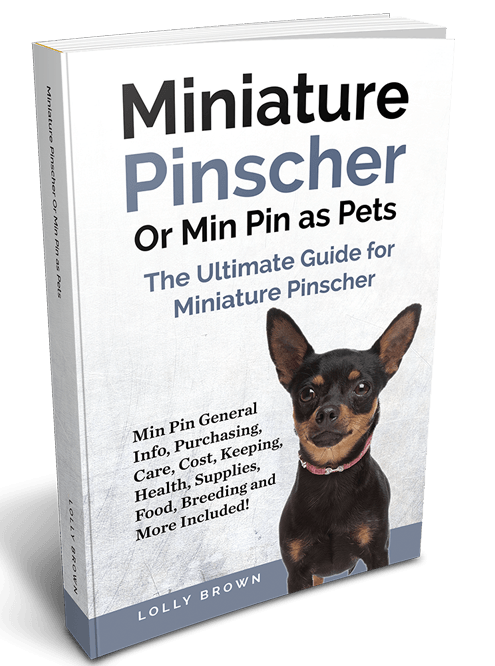TABLE OF CONTENTS
- Introduction 1
- Chapter One: Biological Information 5
- Taxonomy, Origin and History 6
- Size, Life Span, and Physical Appearance 7
- Quick Facts 8
- Chapter Two: Miniature Pinscher as Pets 11
- Is the Min Pin the Right Pet for You? 12
- Pros and Cons of Min Pins 15
- Legal Requirements and Dog Licensing 16
- Cost of Owning a Dog 19
- Chapter Three: Purchasing and Selecting a Healthy Breed 23
- How to Purchase a Miniature Pinscher Breed from Reputable Breeders 24
- Good Breeder vs. Bad Breeder 26
- List of Breeders and Rescue Websites 31
- Chapter Four: Habitat Requirements for Miniature Pinscher 37
- Ideal Habitat for Your Dog 38
- Housing Temperature 41
- Tips on How to Dog – Proof Your House 42
- Chapter Five: Nutrition and Feeding 45
- Nutritional Needs of Miniature Pinscher 46
- How to Select the Right Dog Food 46
- Types of Commercial Dog Foods 49
- Recommended Food Brands for Miniature Pinscher 50
- Toxic Foods to Avoid 53
- Tips in Feeding Your Miniature Pinscher 54
- Chapter Six: Grooming and Training Your Miniature Pinscher 59
- Training and Dealing with Your Dog’s Behavior 60
- Training Tips for Your Min Pins 61
- Housebreaking Tips 65
- Guidelines in Grooming Your Miniature Pinscher 66
- Chapter Seven: Showing Your Miniature Pinscher 69
- Chapter Eight: Breeding Your Miniature Pinscher 79
- Breeding Basics 80
- Signs that Your Female Dog is ready for Mating 81
- Pregnancy FAQs 81
- Raising Puppies 84
- Chapter Nine: Common Diseases and Health Requirements 87
- Common Health Problems 88
- Minor Problems: 88
- Major Problems: 90
- Vaccinations for Puppies and Adult Dogs 93
- Vaccination Schedule 94
- First Aid Treatments 96
- Chapter Ten: Care Sheet and Summary 99
- Glossary of Dog Terms 107
- Index 113
- Photo Credits 121
- References 123

